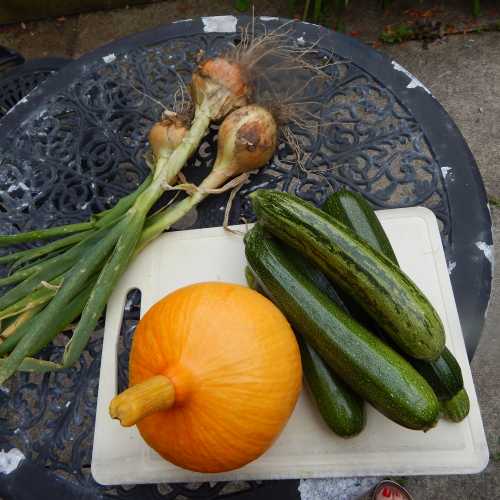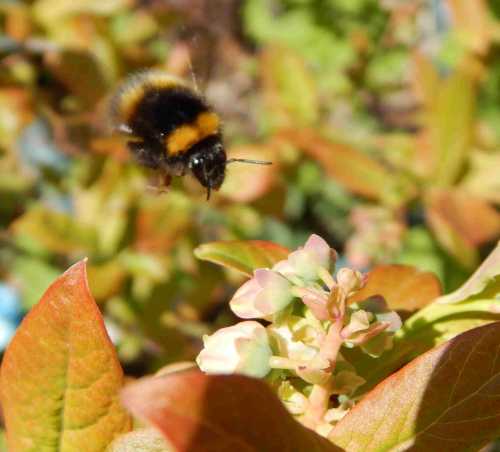Eating Organic And Helping The Bees
I have been eating organic for a few years now, but even more so since I
became concerned about the effects of pesticides not only on bees, but
even on our health and the wider environment. Then of course there’s
GMO, which I also have grave concerns about.
I have read a lot of information including independent studies about
neonicotinoid pesticides and their effects on bees especially.
I
have become increasingly disheartened by our regulatory bodies who fail
to assess pesticides for sub-lethal effects on bees - very tiny doses,
which may not kill immediately, but kill eventually due to impairment of
insect function, build up of toxins in soil etc).
Among other issues.
However, one thing I know for sure is this: we, the general public own 100% of the buying power!
We
determine what stays on our supermarket shelves and what leaves them,
through our purchasing power. When we spend our cash, we cast our
votes.
If we don’t buy, supermarkets get fed up of losing money, so they stop selling the losers.
So
it’s obvious: if I am eating organic food, I know neonicotinoids (and
GMO) won’t have been anywhere near it. I am also supporting organic
farmers. The more people who do this, the greater the signal we send
to supermarkets and in turn, to farmers. We are saying: we don’t want
food stuffed with GMO and neonicotinoids. This will impact on how food
is produced.
 Some of our home grown organic produce.
Some of our home grown organic produce.
"But Eating Organic Food Is Too Expensive For Me!"
Did you know, a recently published United Nations report in 2011 highlighted an astonishing amount of food waste – actually about a third of food produced globally, is wasted! Here is a quote from the study, which you can download at the bottom of this page:
"The results of the study suggest that roughly one-third of food produced for human consumption is lost or wasted globally, which amounts to about 1.3 billion tons per year. This inevitably also means that huge amounts of the resources used in food production are used in vain, and that the greenhouse gas emissions caused by production of food that gets lost or wasted are also emissions in vain.”
The fact is, most of us are guilty of wasting food. I have discovered that if I cut out wastage, especially by planning meals in advance, then I actually SAVE money, even if I purchase as much organic food as I can.
However, if you still find you cannot convert to eating organic food for most of your diet, then at least see if you can identify a few products you could buy every week.
Compare prices and check the ‘reduced shelf’ – maybe you can incorporate the reduced item into your meal for that evening?
Alternatively, if selecting only one or two items from the ‘organic’ selection, choose fruit and vegetables pollinated by bees and other pollinators if you can. Think tomatoes, green beans, apples, pears and berry fruits, courgettes and so on. Then at least you know that pollinators have not been exposed to neonicotinoids or GMOs in the growing of those crops.
If everyone buys at least a few organic food items each week, this will send a huge signal to retailers – together we make a difference, but the difference starts with us as individuals.
Then again, why not have a go at growing your own food?
Eating organic is definitely much cheaper when you grow it yourself.
I have a small garden, but started growing a few organic items in pots several years ago. I started with green beans – they seemed simple. I then went on to grow courgettes and a few other bits and pieces.
I
am now growing potatoes, tomatoes, courgettes, small climbing pumpkins,
beans, chillies, peppers, strawberries, carrots, broccoli and rocket
salad – all in containers!
Growing my own produce is nowhere
near as time consuming as I thought, and because I am using pots of
compost, there is no digging and weeds are very rare.
So here is the link to the UN report (opens new window, and may take a little while to download). UN Food Wastage Report.
